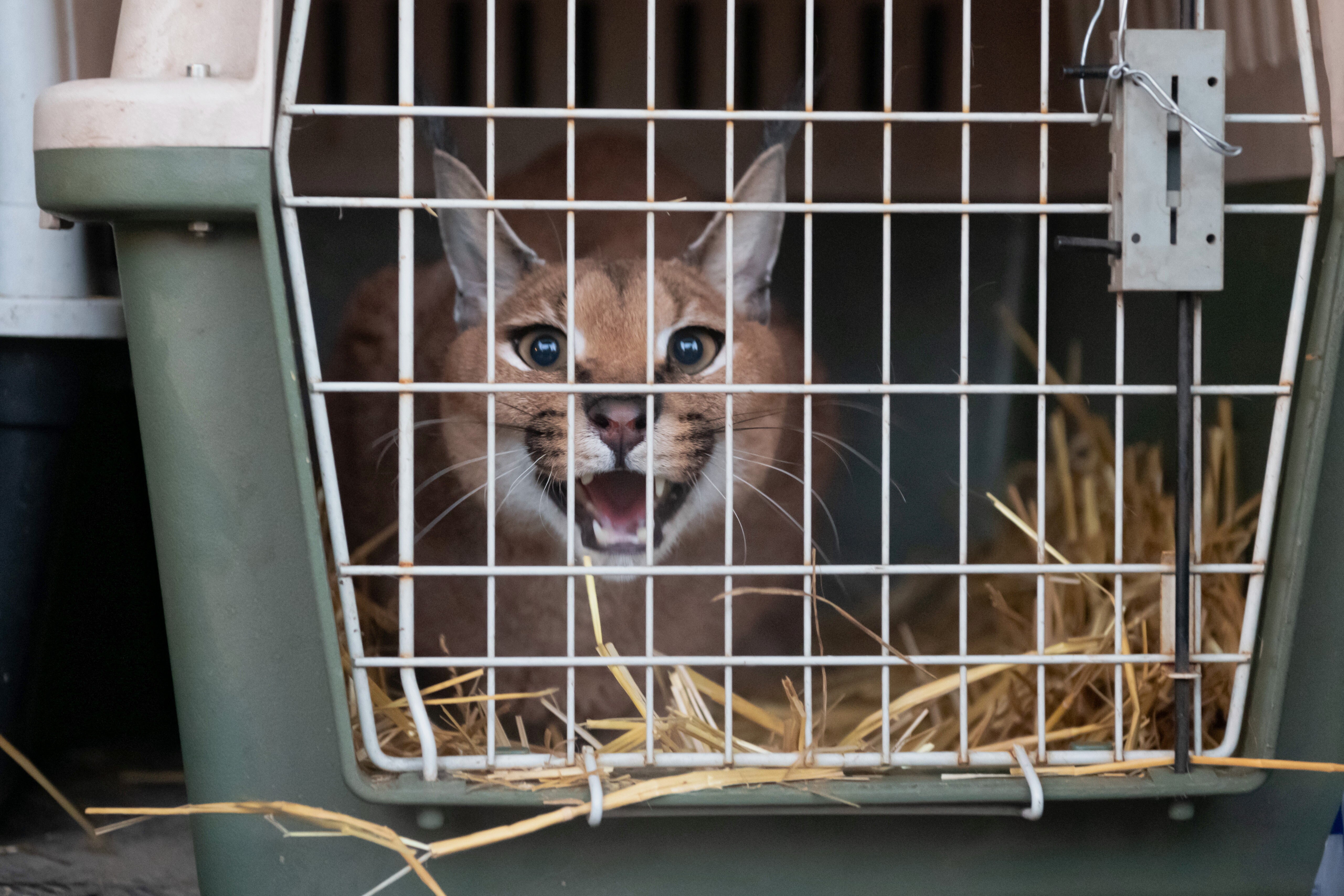Lions and tigers rescued from Ukraine but thousands of animals remain at Kyiv Zoo as war intensifies
‘They had to turn back many times, because all the roads were blown up, full of holes,’ says Polish zoo

Your support helps us to tell the story
From reproductive rights to climate change to Big Tech, The Independent is on the ground when the story is developing. Whether it's investigating the financials of Elon Musk's pro-Trump PAC or producing our latest documentary, 'The A Word', which shines a light on the American women fighting for reproductive rights, we know how important it is to parse out the facts from the messaging.
At such a critical moment in US history, we need reporters on the ground. Your donation allows us to keep sending journalists to speak to both sides of the story.
The Independent is trusted by Americans across the entire political spectrum. And unlike many other quality news outlets, we choose not to lock Americans out of our reporting and analysis with paywalls. We believe quality journalism should be available to everyone, paid for by those who can afford it.
Your support makes all the difference.Six lions, six tigers, two caracals and an African wild dog have been rescued from war-torn Ukraine and driven to safety in Poland.
The animals were from a rescue sanctuary in Kyiv near an airport that has been the scene of intense fighting.
But dozens of others were left behind when staff scrambled to save as many of the 80 animals as they could.
And about 4,000 remain at Kyiv Zoo, which says it has food for only around 10 more days as Russia’s brutal assault closes in on the city.
Natalia Popova, who runs the sanctuary, feared her charges would “either die from bombs or starvation”.
She was forced to select those that had the best chance of surviving the journey, and asked for help with the rescue mission from Poznan Zoo in western Poland.
The destruction caused by Russian attacks in Zhytomyr, northwestern Ukraine, and other bombardment zones was so bad that the convoy had to go a long way round, the Polish zoo said.
“They had to turn back many times, because all the roads were blown up, full of holes, impossible to pass with such cargo, which is why it took so long,” said Malgorzata Chodyla. But here they are, and we just can’t believe it.”

A first attempt to make the journey failed when the lorry’s path was blocked by Russian tanks.
Ms Chodyla said all the animals, including tiger cubs, survived the long journey, but the zoo was worried about a 17-year-old female tiger who looked very tired.
Three older men with no experience in handling wild animals, who helped the convoy, had now gone back to Kyiv to defend their city, she said.
The animals may be taken further west as a Belgian sanctuary has offered to take the lions and the African wild dog, she added.

However, there are fears for the 4,000 creatures at Kyiv Zoo, including elephants, camels and Ukraine’s only gorilla.
The zoo has not yet sent any of its animals to safety – and says it has food for only around 10 more days.
Elephants and some other animals are being given sedatives to calm them down during the explosions and shooting from the close bombardment.
Other animals have been moved to enclosures indoors or underground.

The zoo says it has energy, water, heat and food – but for only around 10 days.
The zoo posted on Facebook on Wednesday: “Zoo staff — zookeepers, veterinarians, engineers and more — are on site 24/7. All animals are fed and well cared for. There is light, heat and water.”
Earlier, staff wrote: “Animals are terrified by the loud sounds of explosions, but our vets are constantly monitoring their condition.”
The Network for Animals organisation has been delivering pet food to a shelter in Starokostyantyniv that is rescuing animals left homeless by the war.
The Independent has a proud history of campaigning for the rights of the most vulnerable, and we first ran our Refugees Welcome campaign during the war in Syria in 2015. Now, as we renew our campaign and launch this petition in the wake of the unfolding Ukrainian crisis, we are calling on the government to go further and faster to ensure help is delivered. To find out more about our Refugees Welcome campaign, click here. To sign the petition click here. If you would like to donate then please click here for our GoFundMe page.


Join our commenting forum
Join thought-provoking conversations, follow other Independent readers and see their replies
Comments